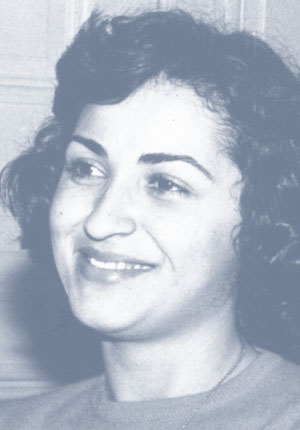Almost universally known by just her first name, Meena Keshwar Kamal was born in 1957, two years before Afghan women gained the right to appear unveiled in public. Women’s rights in Afghanistan were in the ascendancy with women gaining the right to vote in five years later, as increasing educational opportunities became available for girls and women. Opportunities her illiterate mother had never had.
She attended the Lycee Malalai, a Kabul girl’s school named after a 19th century Afghan resistance fighter. Malalai was a Pashtun teenager during the second Anglo-Afghan war. The British wished to colonise Afghanistan and annex part of it to be ruled as part of British India. With both her father and fiancee fighting against the invasion, she tended to the wounded on the battlefield and provided secondary support. With more modern weaponry, the British were advancing despite their smaller numbers. When the standard bearer of the Afghan army was killed, it caused confusion in the ranks. Malalai tore off her veil and used it as a flag to lead the re-invigoured army back into battle. The British were eventually repealed, but Malalai was killed in the battle. The spirit of Malalai lived on not just through the name of the school, but in the hearts of its teachers who actively promoted the education and political involvement of girls.

Meena (Photo: RAWA.org)
After Meena finished her secondary education she attended the University of Kabul, braving the reactionary misogynists of the time who threw acid at female students as the travelled to study. While still a student, she came under increasing pressure to marry in a culture where teenage marriage was not only desirable but a requirement. She refused to marry unless her husband accepted that she would continue her studies and not restrict her political and professional activities; that the marriage would be monogamous, she would not wear a veil and that no bride price would be paid. After an extended search a husband was found for her in Faiz Ahmed, a young radical who later became a maoist political insurrectionary in his own right.
While still at University in 1977, she established the Revolutionary Womens Association of Afghanistan (RAWA). The organisation met in small cells, membership of the organisation was secret to avoid both public pressure and domestic pressure within families and members travelled to clandestine meetings wearing burkas to avoid attracting attention. The organisation provided support and shelter to Afghan women turned refugees by the Soviet occupation. In private dwellinghouses, Meena and her comrades promoted confidence among Afghan women, teaching them skills to lessen their dependence on men and encouraging them to challenge patriarchial norms.
On the 4th June, 1979 3 months after the Saur Revolution, women gathered at the gates of the Pul-i Charkhi Prison, where political dissidents had been held, after it was opened to rejoin their menfolk who had been imprisoned there. When they were admitted, they found many of the cells empty. When they asked where they were, the soldiers pointed at the latrines, where prisoners had been drowned, and to the mass graves surrounding where up to 2000 soldiers and prisoners had been buried. As the women, accompanied by their children, clawed at the ground and dug in the latrines with sticks in hopes of recovering the corpses, the soldier opened fire. That night RAWA went public, distributing leaflets through out Kabul under the cover of darkness.
Seven months pregnant, Meena saw her husband arrested and fearing for her own safety and that of her newborn daughter, she placed her in the care of a local family hours after giving birth and went to exile in Pakistan. Returning to the country the following year, she founded the bilingual magazine “Woman’s Message”. In 1981 she went on a speaking tour to Europe and shamed the Soviet delegation to the World Socialist Congress into leaving the hall as her delivery of a message of no-compromise on human and women’s rights got a standing ovation.
When she returned to Afghanistan, she was a high profile target for the regime. Her picture was circulated and her travel restricted within the country. With a large base among schoolgirls and female students, young RAWA activists traveled all over Afghanistan to raise women’s consciousness, while Meena herself using false papers and hidden under a burka managed to escape to Pakistan working in the refugee camps with the widows and their children, establishing literacy classes for women and girls and smuggling in textbooks, as well as supporting women to develop independent streams of income from their embroidery work and carpet weaving which would liberate them from dependence on patriarchal family economics.
In November 1986, her husband was abducted and murdered by the regime. Knowing that she herself was a target, she continued to work on with her political activities until February 1987, where upon she disappeared. A rumour that she had vanished with a substantial sum of money was quashed six months later when a contingent of Afghan secret police – the KHAD – were arrested in Pakistan with a truckload of explosives destined for areas in which RAWA was active. One of the captured agents was identified by RAWA as someone who had worked with Meena, and eventually confessed to her murder and the theft of the money. He led them to where the KHAD had buried her, and her corpse was recovered, bound at the back and showing signs of torture.
The organisation Meena founded continues to this day, still fighting for the rights of Afghan women, still raising awareness of the atrocities being committed against them, still raising the hopes and aspirations of women across the land.

